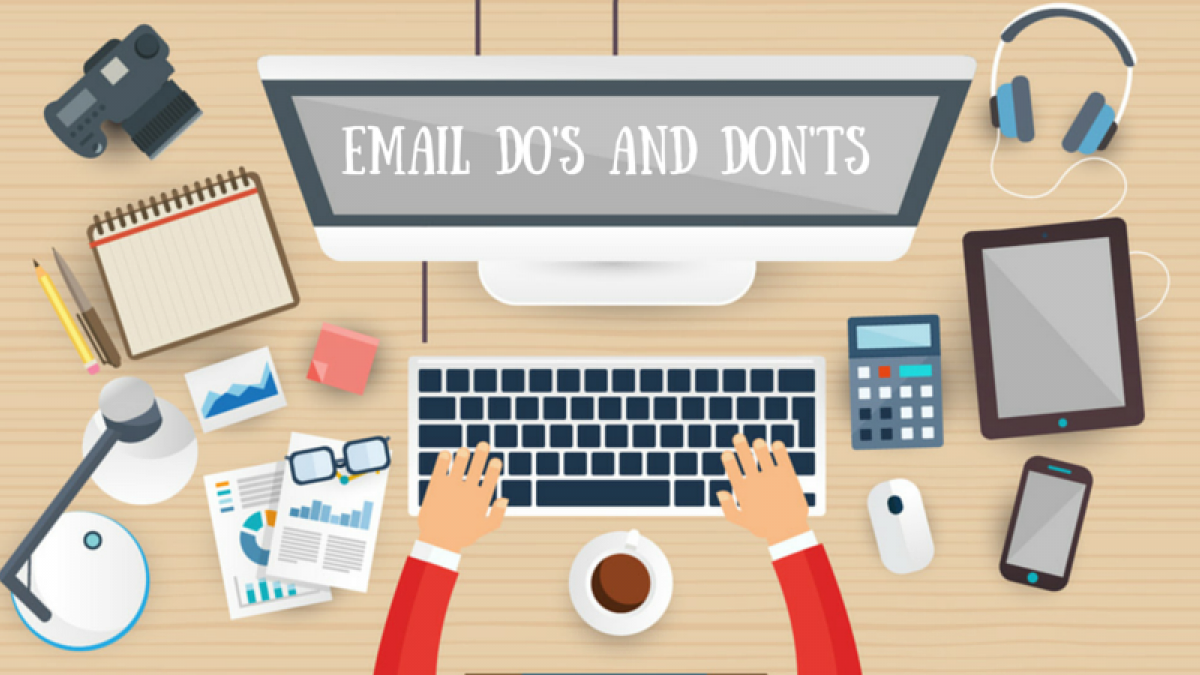
The Do's and Don't's of Emailing at Work
Emailing at work has become extremely commonplace, but it can still get you into trouble if you don't do it right. Knowing what you can (and should) do and don't do can really help you protect yourself from potential problems. Knowing that work emails are often monitored, and that once you send something you may not be able to get it back, are good reminders to stop and think before you type and press "send." Still, there's much more to work emails than just being aware of those two issues. Here are some other things to consider:
Do stay out of email wars
If someone says something you don't like over email, don't reply right away. Wait an hour or two, and come back to the message. Think about it carefully. If it's still bothering you, go find that person and ask for clarification. Don't just send an email back, asking them what the heck they meant by that remark. That can get problems started where there weren't any to begin with, and it's completely unnecessary. It's much more professional to work out any differences you have in person. It's also quite likely that the way you took the statement wasn't how it was intended, so it's better to seek clarification rather than get upset and cause difficulties for yourself or the other person.
Do personalize your email and check before hitting "send"
A generic email that could have been for anyone isn't exactly professional. Address your email properly - even if your office is relatively informal - and make sure you have the right recipient's email address. There are few things more horrifying than realizing you said something snotty about a co-worker and then sent your email to the very co-worker you were talking about. That can be a personal and professional nightmare, but can be easily avoided by (a) not saying those kinds of things in an email, and (b) double-checking before sending.
Do keep your messages on the short side
It's important to convey everything you need to say, but you also need to be careful that you don't get too wordy. You're not writing a book. You're providing a specific piece of information to someone else at your company. Make your email as short as possible while still conveying what is important. You can expand upon the issue or the project in person, but avoid doing that in the email itself. It's completely unnecessary, and could even result in important information being overlooked. When your email is too long, people will tend to skim it instead of reading it. Vital knowledge could be missed that way.
Don't use email to delegate tasks
It might seem a lot easier to just fire off an email to someone so the project can get started, but it robs the other person of the opportunity to ask any questions they have. They can reply to the email, of course, but that takes time and bogs down communication. Avoid it all and just delegate tasks in person. That also lowers the chance of miscommunication, since email information can sometimes be misinterpreted, as can the intention behind some words and phrases.
Don't use email for coaching
When the person on the other end of the conversation can't see your facial expressions and body language, and can't hear your tone of voice, it's very easy to read something into the discussion that really isn't there. That can lead to problems that could easily be avoided by just doing your coaching in person. You don't want the other person to think you were being rude or condescending, or otherwise misinterpret your message. Quick notes praising something are fine, but any mentoring or other type of coaching should really be done in person, where the discussion can be a true exchange, not just a one-sided statement.
Don't forward group messages and jokes
That joke may be hilarious, and the entire group may need a particular message, but email isn't the place for either one of those things. If you must send that joke, only send it to a person you know well and feel comfortable with. The entire office may not appreciate your sense of humor, or may not want to be bothered with non-work-related information while they're trying to get things done. Many people don't appreciate those kinds of distractions, and it could reflect badly on you.
The same is basically true for group messages, which should be avoided as much as possible. Sometimes these kinds of messages are unavoidable, but make sure you're not using them as your main means of communication. Managers and others often do that because they see it as being faster and easier, but it can become too easy to rely on email when you should be talking to the other people in the work environment and having face-to-face interactions with them on a more consistent basis. It's one of the best ways to get to know people and be better able to work with them.

